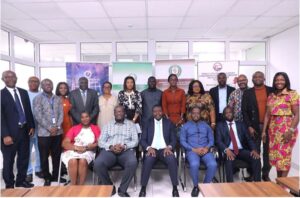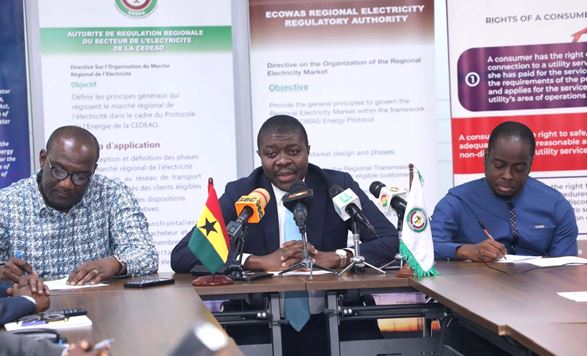By Juliet ETEFE
Accra will host the ninth annual ECOWAS Regional Electricity Regulatory Authority (ERERA) forum from July 24-25, 2024.
Themed ‘Electricity trade security in ECOWAS region: the interplay between national policies and free market principles’, the forum will bring together key stakeholders from across West Africa to discuss and shape the region’s future in electricity trade and regulation.
Chairman-ERERA, Kocou Laurent R. Tossou, at a press briefing ahead of the event underscored the critical nature of this gathering.
“Electricity security is a key issue that needs to be handled by all stakeholders in the market. Our role as regulators is to harmonise the various policies of each country to ensure smooth electricity trade within the region,” he stated.
He highlighted the progress made so far, noting that some countries in West Africa are already interconnected – allowing for exchange of electricity and emphasising the need for robust regulatory frameworks.
The forum will provide a platform for representatives from all Economic Community of West African States (ECOWAS) countries, particularly regulators and operators, to share developments and plan future activities for the next five years.

It will be preceded by a meeting of ERERA’s joint Consultative Committees of Regulators and Operators on July 22 and 23, 2024.
“We aim to create a reliable and affordable electricity supply for the region’s people,” he added. This session will be an occasion for delegates to express the issues in their countries and put in place a work-body to decide the market’s future,” he explained.
Ing. Oscar Amonoo-Neizer, Executive Secretary-Energy Commission of Ghana, also emphasised the forum’s importance for regional development.
“The annual regional energy forum’s ninth session is crucial to the reliability and supply of energy, which is vital for national development in terms of industry growth, job creation and overall economic progress,” he said.
Mr. Amonoo-Neizer pointed out the diverse energy resources available across the region, such as natural gas, solar, hydro and wind, and the potential benefits of harnessing these resources collectively.
“By pooling our resources, we can achieve competitive pricing and a dependable energy supply that will drive development across West Africa,” he asserted.
For his part, Ishmael Ackah, Executive Secretary-Public Utilities Regulatory Commission (PURC) of Ghana, addressed disparities in electricity tariffs within the region and need for equitable resource sharing.
“Some countries have electricity tariffs as high as 30 cents per kilowatt-hour, while others are below 10 cents. We need to share resources and economic benefits to ensure access to reliable and affordable electricity for all West African countries,” he noted.
Mr. Ackah also highlighted the forum’s role in balancing national interests and economic principles for electricity trade.
“ERERA aims to gather experts to discuss solutions that allow countries to satisfy their own needs while also engaging in electricity trade,” he said – adding that for Ghana, the forum presents an opportunity to enhance its role in regional energy trade.
He envisions Ghana becoming a hub for energy generation, creating jobs and driving economic growth through competitive electricity prices and robust infrastructure investments.










